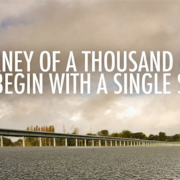QUICK TIPS, EASY WAYS – no such thing!
QUICK TIPS, EASY WAYS, SIMPLE STEPS?
In life development there’s no such thing!
I write a blog relating to issues I come across on a regular basis: decision making; obstacles to clear thinking and focus; self confidence; workplace stress; early depression among executives, and so on. Just recently a coaching website very kindly agreed to published one of my missives with the condition that they could affect minor alterations to fit in with their style and theme. I willingly agreed and thought no more of it until one of my regularly readers brought my attention to the title of the piece which had been edited to begin with the words ‘Five Easy Ways To……’
‘Five Easy Ways’, ‘Ten Quick Tips’, ‘Seven simple steps’, are all anathema to me and unfortunately do my profession, at best, a huge disservice. Before proceeding I should say that the website concerned reacted promptly when I pointed out my feelings and they quickly changed the title to one I could agree with.
Blogging by its nature cannot explore a topic in any depth. It is there to promote interest in a given subject and to provoke the reader to ask questions of themselves and to challenge some of their perspectives. These mini articles of 300-500 words, however, may offer insights and illustrate behavioural triggers that can help people to begin to understand how life management and/or change may be brought about, but that is all. In our social media centric age we seek snippets of information, fast solutions, and ‘drive-thru’ concepts – but in my profession, to offer people anything other than complete reality is, to put it mildly, profoundly misleading.
There is no reason that the universe should be designed for our convenience.
John D Barrow (British cosmologist)
Our social conditioning began when we were small children so we have decades worth of beliefs, of knowledge, of family and social norms – some very good, some we are better off without – to balance. In my experience there is no such thing as a quick fix when it comes to addressing how we see and think about our world.
When discussing managing our businesses or our lives, it takes hard work, clarity, focus, planning and time. With these factors in place we can achieve anything we set our minds to. Straightforward it may be – but simple it aint.




